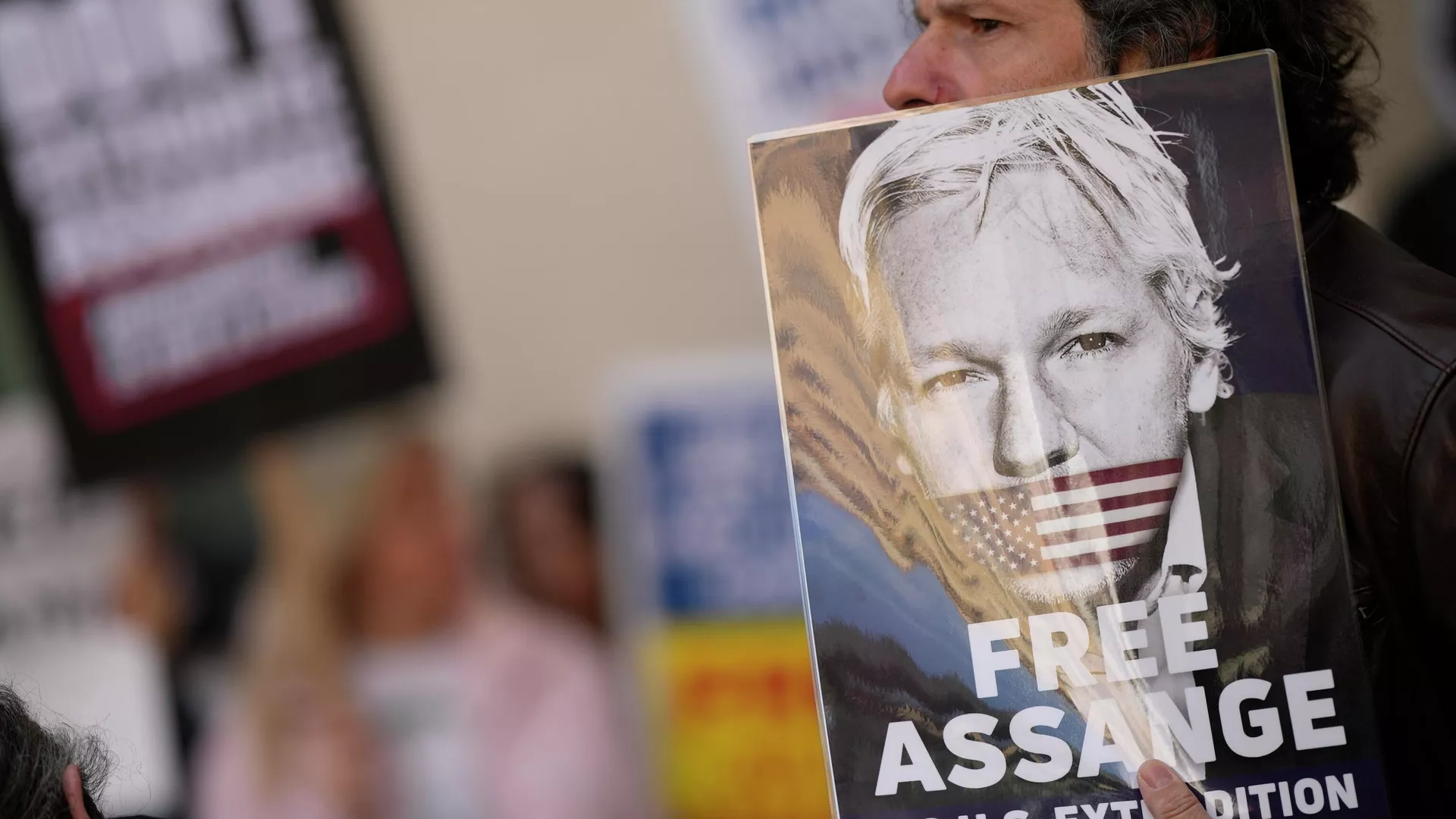The Tuesday rally on behalf of the long-persecuted WikiLeaks publisher briefly took an alarming turn when one man seemingly attempted to light himself on fire in an apparent political statement.
Journalists, scholars and political activists descended on the Department of Justice in Washington, DC, on Tuesday to condemn the ongoing legal assault on jailed WikiLeaks founder Julian Assange.
In an event marking the four-year anniversary of Assange’s imprisonment in the UK’s notorious Belmarsh prison following his forcible removal from the Ecuadorian embassy by British police, organizers denounced the Biden administration’s continued persecution of the Australian editor.
“Today marks a total of 4,507 days of illegal and arbitrary detention” of Assange, “and it was four years ago today – 1,460 days that he was ‘essentially kidnapped from the Ecuadorian embassy and sent to ‘the Guantanamo Bay of Britain,’ Belmarsh prison, all for telling the truth,” explained Action4Assange co-host Misty Winston.
The event took a bizarre twist when a man with a newly-inked tattoo reading “Free Assange” stripped off his clothes and doused the ground with gasoline in an apparent attempt at self-immolation. Horrified onlookers could be heard screaming before CIA whistleblower John Kiriakou leapt into action and talked the man out of the gruesome stunt.
Footage of the incident shows the man, who was later arrested, screaming, “do you know what he’s doing in there?” before a visibly-angry Kirakou, who was jailed for two and half years for exposing the CIA’s torture program responded: “I do – I went to prison!”
The strange turn of events led former Veterans for Peace President Gerry Condon, whose speech was briefly interrupted by the situation, to caution that while “desperate times inspire desperate actions, we should all think about what we can do that’s not self-destructive… to make a strong statement for the truth.”
Moments before, Kirakou warned in his speech that “although it should be withering,” the “case against Julian Assange is progressing.”
And, crucially, efforts to imprison Assange have far-reaching consequences for not just Assange, but for everyone concerned about civil liberties.
“This case is no longer just about Julian Assange,” Kiriakou noted. “This case is about the Constitution.”
“This case is about the First Amendment, freedom of speech, freedom of the press,” said the CIA whistleblower, who pointed out that “if Julian Assange goes to prison, then all of us are liable to go to jail.”
But according to retired CIA analyst Elizabeth Murray, the potential ramifications don’t end there.
Citing public statements of support from international human rights organizations, major mainstream papers, the presidents of Mexico, Bolivia, Colombia, and Argentina, “the US is becoming an outlier, not just because of things like de-dollarization or the way things are going” in Ukraine, “but because of its attitude toward Julian Assange.”




